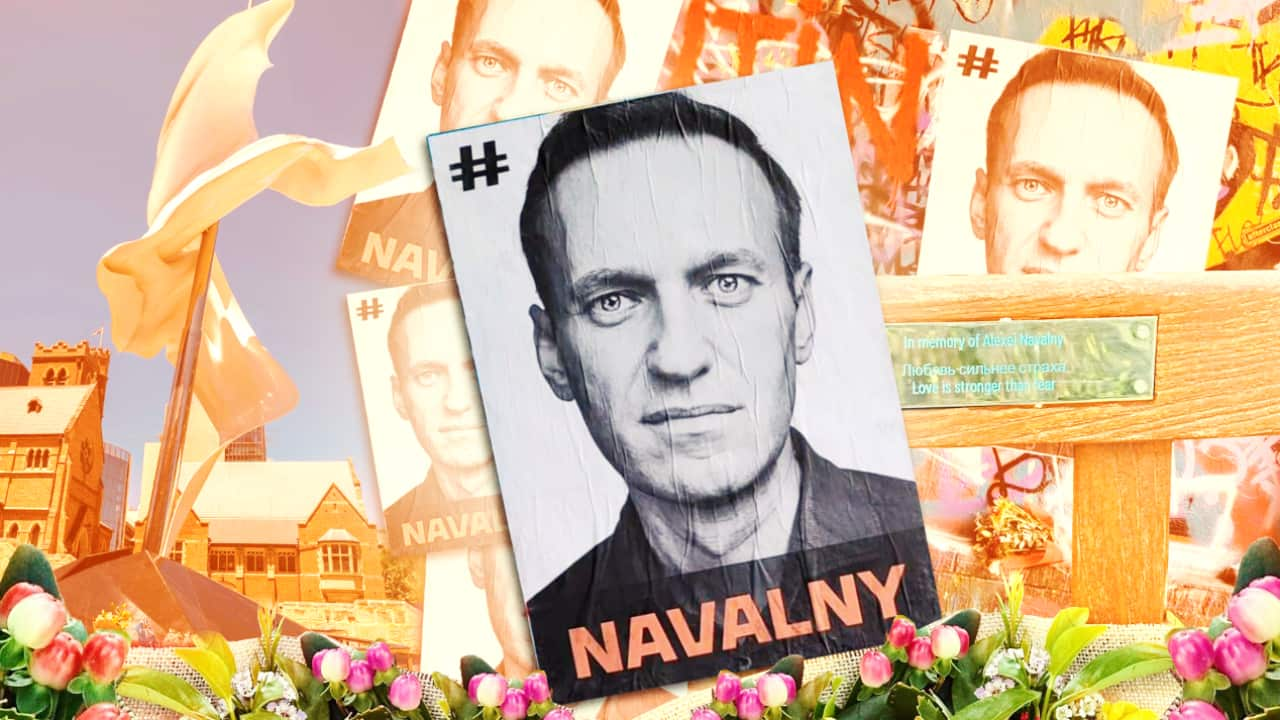Key Points
- Russian opposition leader Alexei Navalny died on 16 February 2024 in a remote Arctic Circle prison camp.
- His supporters in Australia have established memorials for him in most capital cities.
- They will gather for special services to coincide with the one-year anniversary of his passing.
- In 2023, Navalny was sentenced to an additional 19 years in prison on extremism charges.
People in Perth have been bringing flowers to Navalny’s portrait since February 2024, when they were shaken by news of his passing.
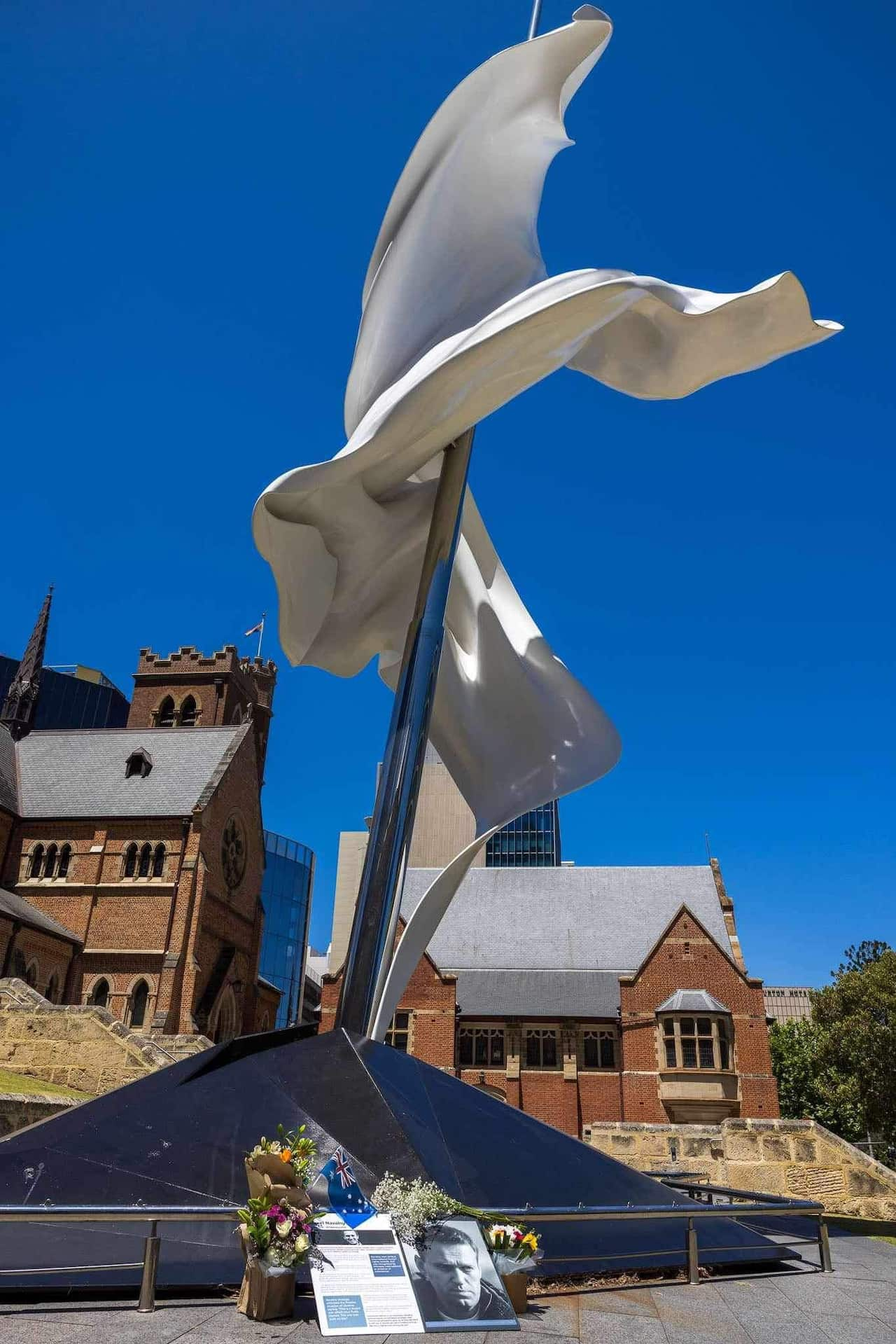
A makeshift memorial to the late Alexei Navalny at St George’s Cathedral in Perth. Credit: Supplied / Raisa Akifeva
Over the past year, the memorial has evolved from a spontaneous tribute to a more permanent one, with the support of St George’s Cathedral, says Raisa Akifeva, a researcher at Edith Cowan University and one of those who maintain the memorial.
She added that the cathedral’s rector, in a meeting with community representatives, said he and other cathedral members were pleased the abstract sculpture had resonated with them.
‘Love is stronger than fear’
These words, along with “Russia will be happy” and the famous photo from prison where he forms a love heart with his fingers to cheer up his wife Yulia, have become powerful symbols of love and resilience for Navalny’s supporters.
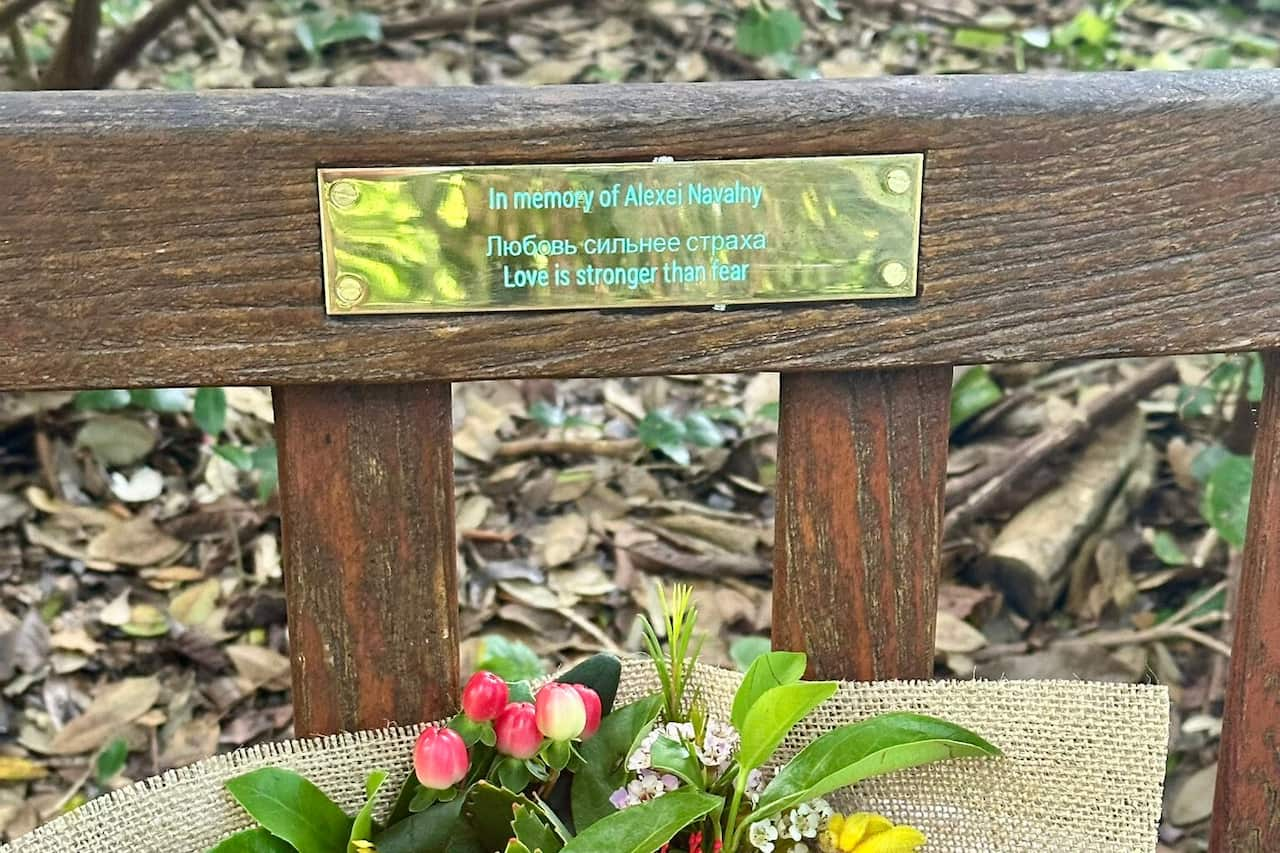
A bench in memory of Alexei Navalny in Sydney. Source: Supplied / Pavel Shpilev
The bench was unveiled in December 2024 after crowdfunding.
“Alexei Navalny was more than just a politician. He was a man who stood up to fear with incredible courage … His belief that love is stronger than fear resonates with many of us, especially those who have been forced to leave their homes in search of safety and freedom,” wrote crowdfunding organiser Pavel Shpilev.
This is the least I could do. And if one person wants to learn about Alexei by finding this bench in the park, I think the task will be accomplished.
Pavel Shpilev
Galina Seredina, secretary of the Svodoba Alliance, told SBS Russian that they were grateful the Jewish community of Sydney allowed them to establish another Navalny memorial there.
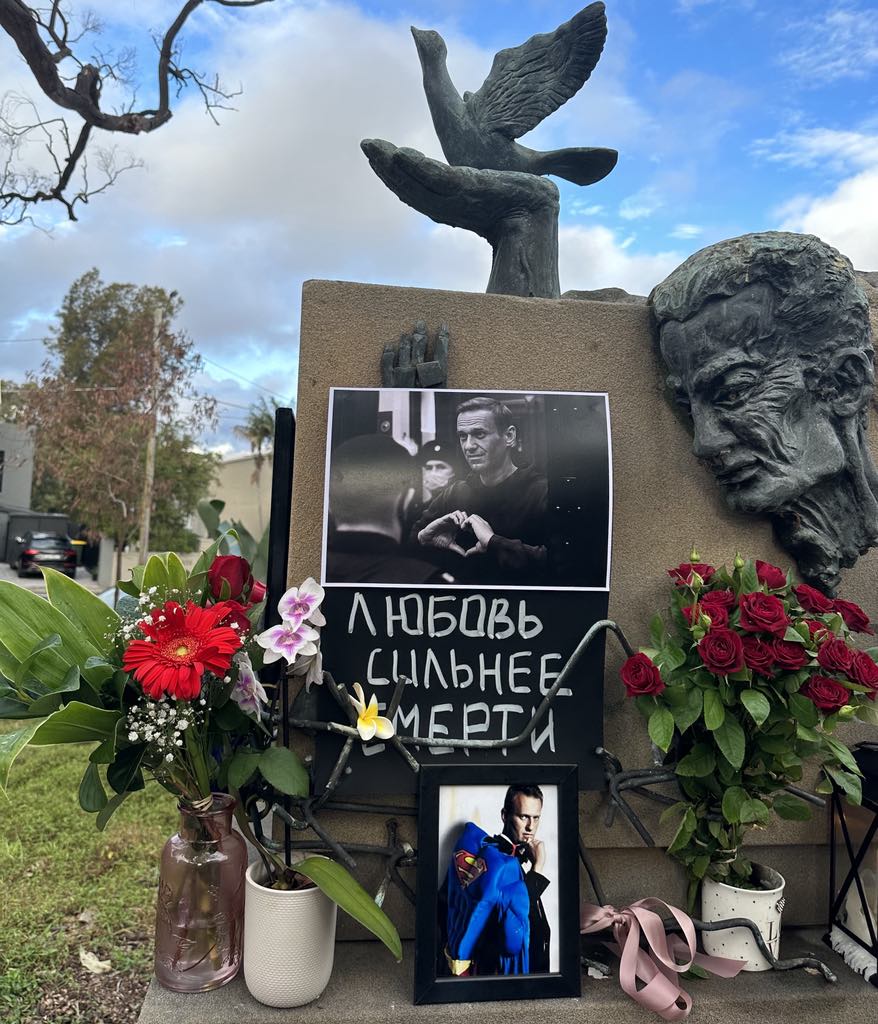
A Navalny memorial in Sydney. Credit: Supplied / Galina Seredina
In Melbourne’s Collingwood, the new Goldstone Art Gallery will feature an exhibition entitled This is Navalny, the first solo show by esteemed Russian photojournalist-in-exile Evgeny Feldman, who captured “the indomitable spirit of a man who dared to confront authoritarianism”.
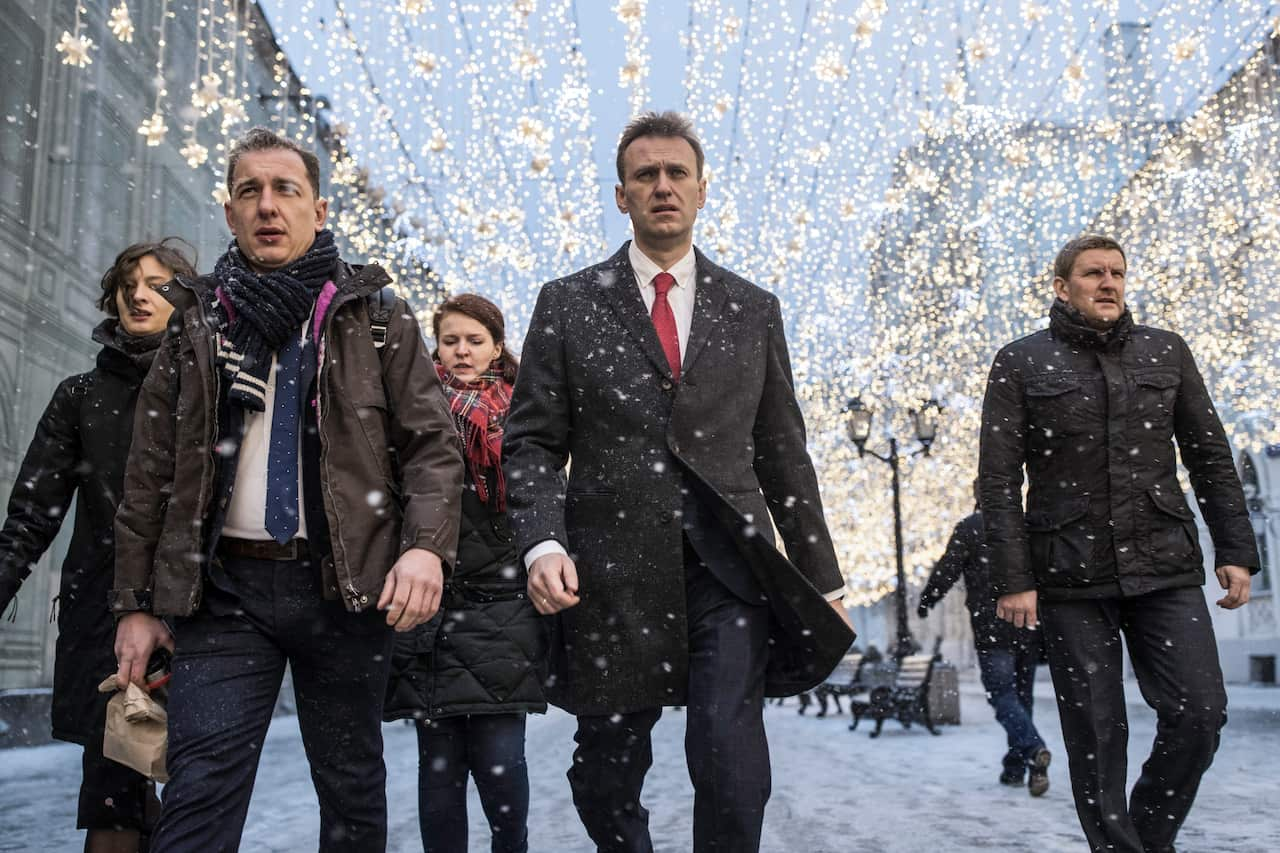
One of Evgeny Feldman’s photographs of Alexei Navalny which will feature in a new exhibition in Melbourne. Credit: AP Photo/Evgeny Feldman/AAP Image
Gallery curator Nina Sanadze, a sculptor and visual artist who had a large solo exhibition at NGV last year, told SBS Russian that Feldman had been photographing Navalny since 2011.
“Perhaps our exhibition will become the main place where we can gather and remember Navalny, to understand the importance of what he did and who he was,” she said.
Churches ‘under pressure’
“At first, they agreed. In both Sydney and Melbourne, the priests told us they would hold (the memorial service). But then they changed their minds. (I believe) they were under pressure,” Kuzmin said.
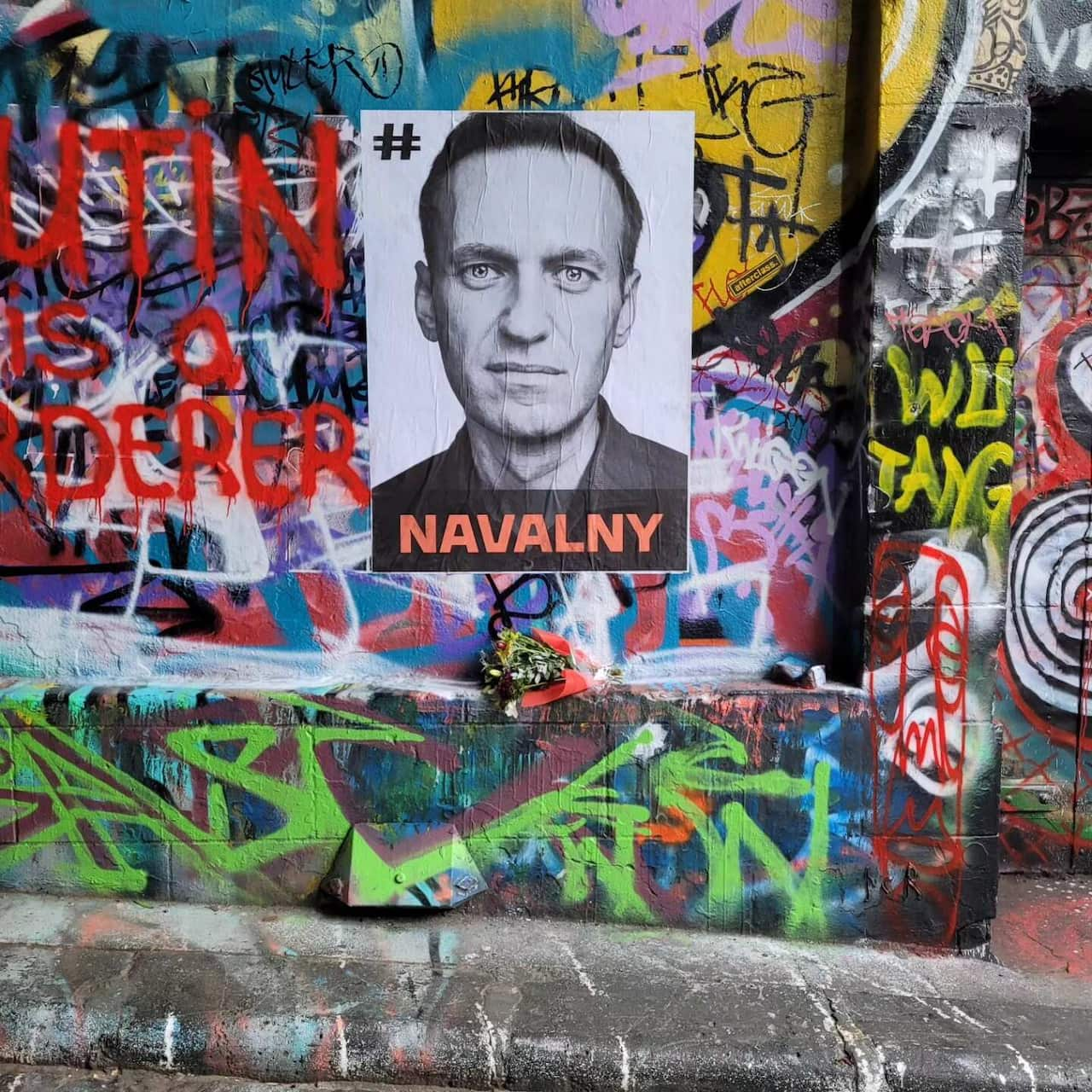
A Navalny memorial in Melbourne’s famous Hosier Lane in 2024. Source: SBS
“I tried several times during the week to convince the priest that this should be done. It did not work. In Sydney, we still managed to hold the service, but it was not in a Russian church.”
Nicholas Ohotin, Communications Director of Synod of Bishops of the ROCOR, told SBS Russian: “Mr Navalny was not a member of the ROCOR community at any time. Divine services are held for worship and prayer, not for political purposes. There is little doubt that such memorial events would be interpreted as the latter.”
